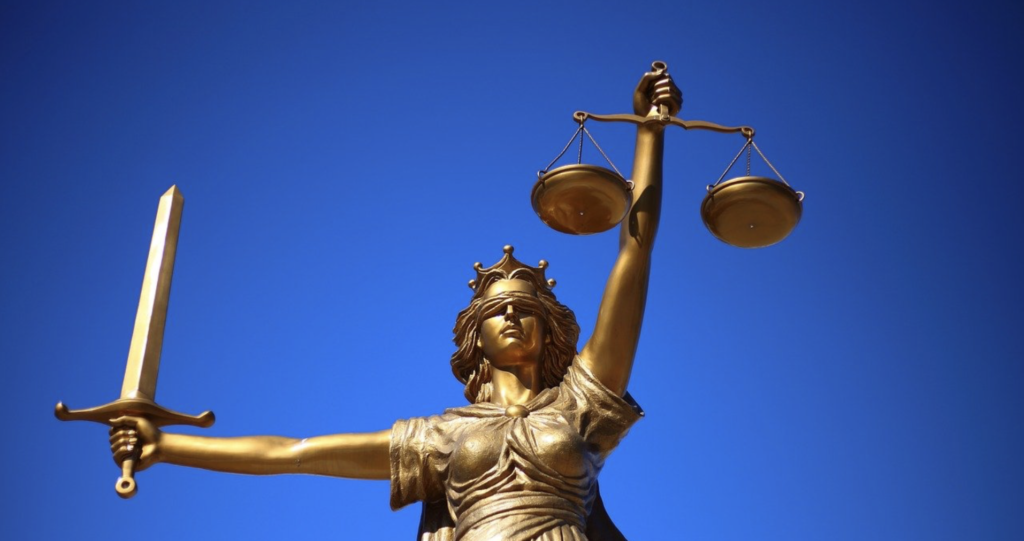
We can parrot it from memory no doubt though you and I are not lawyers (thus ‘unlearned’ in legal terms). Given what’s trending in the USA, the maxim may irritate and disgust you if you are a Trumpite but perhaps delight and even excite you if you are not. The maxim is “no one is above the law”.
Do you know the historical taproots of this maxim? No? I thought as much but I am here to help. Fair warning, the taproots are unquestionably Christian so if you have an animus with Christianity or Christians fetch whatever you normally resort to for upset stomach or indigestion.
The legally entrenched idea that no one is above the law had its genesis in an encounter between an emperor and a bishop in the 4th century of this era and got two other shots in the arm from the British Magna Carta in the 13th century and a bombshell of a book written by a clergyman in the 17th century.
In A.D. 390 some people in Thessalonica rioted, arousing the anger of the Christian emperor, Theodosius the Great. He overreacted, slaughtering some seven thousand people, most of whom were innocent. Bishop Ambrose, who was located in Milan—which was also where the emperor lived—did not turn a blind eye to the emperor’s vindictive and unjust behavior. He asked him to repent of his massacre. When the emperor refused, the bishop excommunicated him.
After a month of stubborn hesitation, Theodosius prostrated himself and repented in Ambrose’s cathedral, bringing tears of joy to fellow believers. (Alvin Schmidt, Under the Influence, p. 250 and Paul Johnson, A History of Christianity, p.10)
The emperor too was under the law and Ambrose would not allow the emperor or others to forget that.
Nor can we forget the significant influence of the Church, through the Archbishop of Canterbury, Stephen Langton and his Christian colleagues, on the British Magna Carta (the Large Charter) of 1215, which gave new rights to barons and the people in general and which also challenged the notion of the king being above the law. [Langton too is said to be behind the origin of chapters and verses in English translations of the Bible]
The Rev. Samuel Rutherford, a Presbyterian, wrote his Lex, Rex: Or the Law and the Prince in 1644. The main thesis, as implied in the title, is that the law is king, and so the king is under the law and not above it, a notion that was regarded as treasonously contrary to the tradition of the ‘divine right of kings’.
The international impact on the judiciary of Christian legal pioneers and other outstanding lawyers/jurists has been spectacular and continues into the present.
The “Father of International Law” is the 17th century Dutchman Hugh Grotius whose seminal work on international law was De Jure Belli ac Pacis – On the Law of War and Peace. It is not enough well-known that this same brother in Christ wrote in 1623 the first modern textbook on Christian apologetics (De Veritate Religionis Christianae – On the Truth of the Christian Religion) in which he “marshalls the evidence for the resurrection and subjects the claims of the eyewitnesses to the resurrection to cross-examination.” (cited in Craig Parton, The Defence Never Rests, p.97)
Simon Greenleaf, that 19th century professor of evidence at Harvard, acknowledged as the greatest living scholar on evidence at the time also applied his professional skills to an investigation of the truthfulness of the Gospel writers. In his book The Testimony of the Evangelists: The Gospels Examined by the Rules of Evidence), still a classic in apologetics, he concludes “by finding that the Gospel writers withstand the most rigorous scrutiny and that their eyewitness testimony would be admissible in any court of law in the country.” (Parton, p.88).
Closer to our time “Lord Hailsham, former high chancellor of England moved from unbelief to Christianity…on the basis of his investigation of the evidence for Christian faith.” (Parton, p. 88).
I mention now with pride my intellectual father and friend Prof. John Warwick Montgomery, beyond controversy the leading living advocate of evidential and legal apologetics. Holder of 11 earned degrees and is, ponder this well, an American attorney, a French avocat and an English Barrister (Middle Temple, Lincoln’s Inn), author of over 60 books in six languages, in law, apologetics, philosophy, theology and history. He is ordained in the Lutheran Church (Missouri Synod) and has lectured briefly in Jamaica (including a lecture at the Norman Manley Law School).The legal profession in Jamaica and a few other Caribbean countries has benefitted from the expertise of several Christians, the most recent Chief Justices of Jamaica are committed Christians: Lensley Wolfe, Zaila McCalla, both Anglicans and Bryan Sykes (Baptist) and if you check the top legal posts in the judiciary in Jamaica you will discover many Christians, our Attorney General and Solicitor General, judges of Appeal and others.
